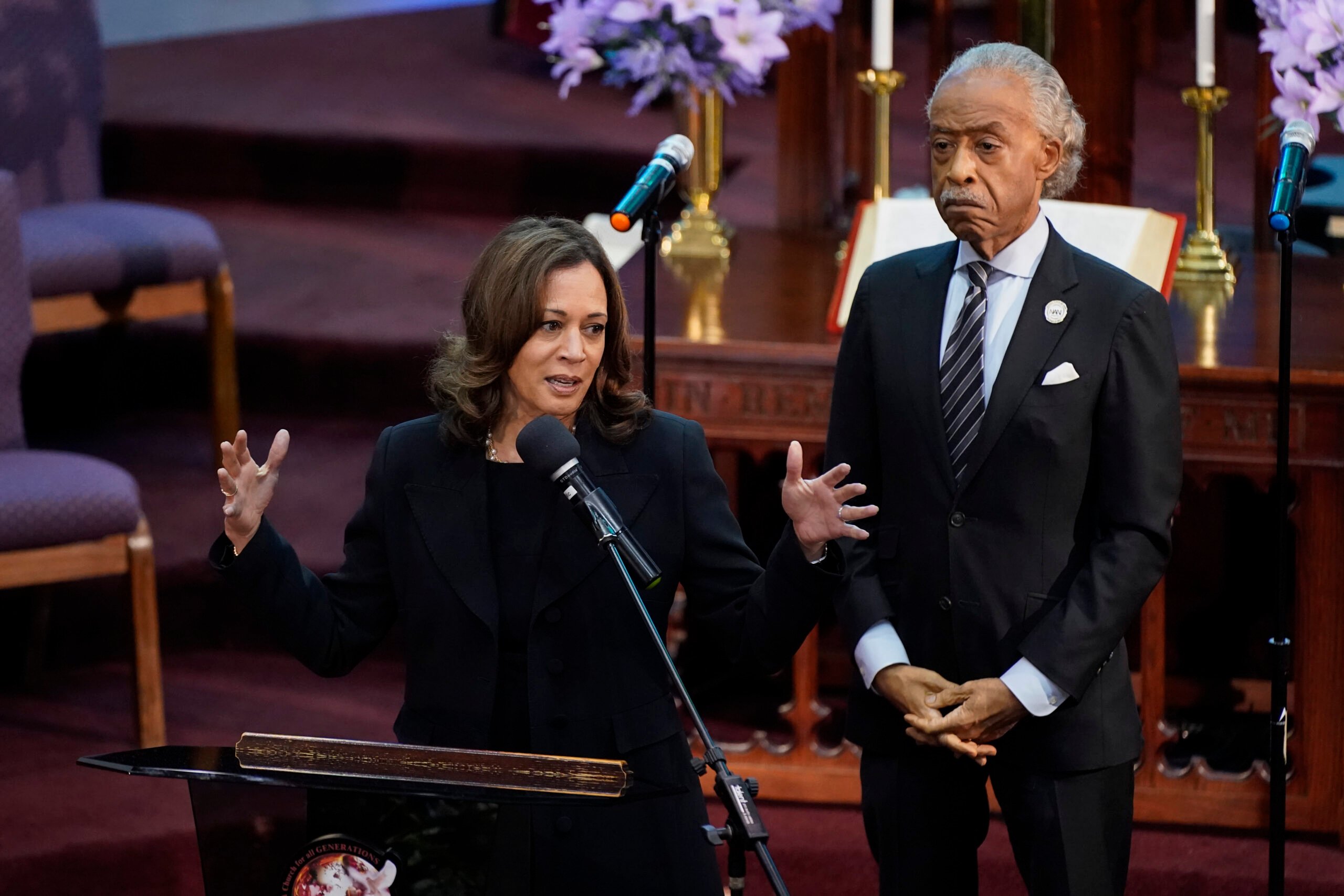
Last year, Trump posted that, if reelected, he would investigate Comcast over what he called ‘one-side[d] and vicious coverage’ from the media conglomerate’s flagship news channels, NBC and MSNBC.
By Chuck Ross, The Washington Free Beacon
President-elect Donald Trump accused MSNBC host Al Sharpton of taking illegal donations from the Kamala Harris campaign ahead of softball interviews with the Democrat last year, potentially spelling trouble for MSNBC and its parent company Comcast ahead of a planned corporate spinoff.
In a series of posts on Truth Social, Trump accused the Harris campaign of seeking to “illegally buy endorsements” from Sharpton and celebrities like Beyoncé Knowles and Oprah Winfrey prior to the election.
Trump’s remarks were based on a Washington Free Beacon report that the Harris campaign donated $500,000 to Sharpton’s nonprofit, the National Action Network, weeks before the activist interviewed Harris on his MSNBC show, PoliticsNation.
“Totally against the law,” Trump asserted.
The comments raise questions about whether Trump could take action in his second presidential term to block Comcast’s proposed spinoff of its news networks.
The media giant in November announced plans to spin off NBC, MSNBC, and CNBC into a separate public company—a bid to separate its movie studios from the dwindling cable TV business.
Comcast and MSNBC did not return requests for comment.
At least one industry expert said that while he did not expect the spinoff to face headwinds from federal agencies, Trump was an “X factor” that could gum up the process.
Trump could “slow-down or otherwise interfere with the transaction,” said investment analyst Blair Levin, who noted that MSNBC is a “major Trump nemesis.”
Last year, Trump posted that, if reelected, he would investigate Comcast over what he called “one-side[d] and vicious coverage” from the media conglomerate’s flagship news channels, NBC and MSNBC.
And Trump could be emboldened to take on the media conglomerate after winning a $15 million legal settlement last month with ABC News over comments from host George Stephanopoulos, who falsely claimed Trump was found liable for raping a woman in the 1990s.
Trump has stymied other media conglomerates in the past. Before the 2016 election, he came out against the proposed $85 billion merger between AT&T and Time Warner, the owner of the anti-Trump news channel CNN.
The Department of Justice under Trump sued to block the merger in 2017. The merger was completed in 2018, but the companies spent years in court fighting the DOJ’s lawsuit and subsequent appeal.
Trump’s new focus on the Harris campaign’s payments to Sharpton’s nonprofit could provide the impetus for him to get involved in the MSNBC spinoff.
Trump did not describe what he believes is illegal about the Harris campaign’s donations to the National Action Network, which Sharpton launched in 1991, the same year he stoked the anti-Semitic Crown Heights riots in New York City.
MSNBC has tried to distance itself from the Sharpton donation, telling the Free Beacon that it was “unaware” of the payment. The network, which prohibits employees from engaging in political activity without corporate approval, has declined to describe its discussions with Sharpton on the issue.
The Society of Professional Journalists, a prominent media watchdog group, called the conflict of interest a “black eye” that “harms the credibility of the journalist, the news organization, and journalism overall.”
Sharpton has been accused of using the National Action Network as a personal piggybank and wielding power against corporations.
Sharpton landed his MSNBC show in 2011, a year after Comcast hired him to lobby on behalf of the media giant’s merger with NBCUniversal. Sharpton’s questionable lobbying role had generated scrutiny from outlets such as the New York Times, which wrote that it “raises issues about [a] possible MSNBC job.”
Byron Allen, one of the most successful black media moguls in the country, sued Comcast, Sharpton, and National Action Network in 2015 over what he called “sham diversity agreements” between Sharpton and Comcast.
Allen alleged that Sharpton “has a business model and track record of obtaining payments from corporate entities in exchange for his support.”
The National Action Network paid Sharpton more than $650,000 in salary in 2023, according to tax filings obtained by the Free Beacon. Sharpton and the National Action Network have not responded to numerous requests for comment.
The Harris campaign’s donation to the National Action Network came as it gave more than $5 million to black and Latino groups, seemingly to turn out voters in those demographics.
The campaign gave $2 million to the National Urban League and $120,000 to Casa in Action, a Latino voter group. Those groups’ leaders did not also work at major news organizations.
The Harris campaign doled out millions more to celebrities and musicians who endorsed Harris at campaign rallies before the election. The campaign paid $2 million to Winfrey’s production company after Winfrey hosted an arena event for Harris on September 19.
The campaign paid $165,000 to Knowles’s production company and $75,000 to Bruce Springsteen’s company, the Free Beacon reported. Knowles endorsed Harris at a campaign event in Houston on October 25, though she did not perform any songs, much to the chagrin of Harris supporters and Knowles fans.
Trump posted this week that “Beyoncé didn’t sing, Oprah didn’t do much of anything … and Al is just a third rate Con Man.”
The post Trump takes aim at Kamala’s ‘illegal’ pre-interview campaign payments to Sharpton appeared first on World Israel News.